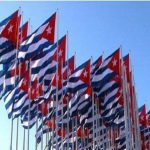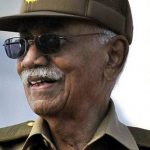On October 10, 1868, at La Demajagua sugar mill, Carlos Manuel de Céspedes, an extraordinary Cuban declared the independence of his homeland.
With the consent of around 500 men dressed in field clothes and a revolver at his waist, Céspedes ordered the ringing of the bronze bell and gathered everyone, including the black slaves of the mill.
They say that with emotion he pointed towards the rising sun on the slopes of Pico Turquino and said that those rays announced the First Day of Freedom, the beginning of a just, anti-colonial and anti-slavery war.
Later, he proceeded to free his slaves, whom he dignified with the status of “citizens” and invited them to participate in the emancipatory struggle. Thus the foundations for the definitive multiracial integration of the Cuban nationality were laid.
The sad history of whips, and affronts on the part of Spanish colonialism, began to change and due to its magnitude the event was closely followed by all contemporaries, being conceptualized by many as the most luminous, and the greatest in Cuban history and without a doubt, the most significant contribution of the political-military thought of Carlos Manuel de Céspedes.
The seed germinated in the Little War, in the War of 95 and, it sprouted in the revolution of 1933 and finally caught in the Centennial Generation led by Fidel Castro, which finally had its revelation with the triumph of January 1, 1959, in which the Cuban people, owner of a destiny of equality and justice for all, also enjoy everything they have achieved, knowing their history, but feeling heir to the continuity, thought and action of Carlos Manuel de Céspedes, the Father of Homeland.






